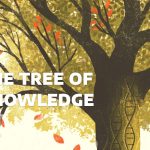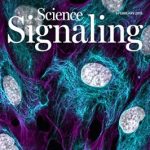November 26, 2019
A Family Tree and a Timely Genetic Test

UW Medicine has featured the cancer research of MSTP alumni Colin Pritchard (entered ’98, graduated ’07) and Heather Cheng (entered ’98, graduated ’07) through the story of the Mallard family. Their research on how hereditary cancers are passed down and treated is continuing to improve the lives of families just like the Mallards.
September 12, 2019
New HIV Research Publications

E-13 student Nicole Naiman has two recent publications relating to her research on HIV. The first, published in August 2019, appears in the Journal of Infectious Diseases, and addresses mother-to-child HIV transmission. This publication reviews an association between plasma antibody binding to the gp41 ectodomain in breastfeeding mothers to increased odds of transmission to the…
New Frontiers in Neuroscience Publication

E-13 MSTP student David Caldwell’s publication in Frontiers in Neuroscience looks into electrocorticographic brain computer interfaces, which offer opportunities to restore brain function in individuals suffering from neurological damage. This article reviews ECoG electrodes, the physics and physiology of DES, and the use of electrical stimulation of the brain for the clinical treatment of disorders…
New DNA Repair Publication

E-13 MSTP student Mark Ragheb latest publication in DNA Repair explores the role of Mfd in replication-transcription conflicts in bacteria. DNA replication and transcription, a remarkable undertaking, must occur in a timely and accurate fashion in all organisms. This publication explores the conflicts in this process. Conflicts can lead to various detrimental outcomes, including replication…
New PLOS Pathogens Publication

A collaboration between MSTP students Nicole Naiman (E-13), Theodore Gobillot (E-14), and Kate Dusenbury (E-14) was published in February 2019 in PLOS Pathogens. This publication explores HIV antibodies that mediate killing of infected cells. Eliciting an antibody response to the HIV Envelope protein is thought to be the most likely path to an effective vaccine,…
New PLOS Genetics Publication

E-15 MSTP student Anna-Lisa Doebley in the March 2019 issue of PLOS Genetics considers the integrity of germ lines and mechanisms that act to suppress damage to the genomes. The germ line is effectively immortal and capable of creating new “young” offspring. This research indicates that the C. elegans protein phosphatase GSP-2 is critically important…
New Science Signaling Publication

E-14 MSTP student Eli Grunblatt’s latest publication in Science Signaling‘s February 2019 issue explores small cell lung cancer. There has been limited improvement in first-line SCLC treatment in the past 30 years, and no targeted therapies are currently available. The high death rate and lack of treatment options have led the National Cancer Institute to…
July 11, 2019
Dr. Colin Pritchard authors Nature editorial
Dr. Pritchard suggests that names that label certain cancer risk genes as sex- or organ-specific can dissuade people who need to be tested. Simplifying the name for cancer genetic syndromes could save lives.
June 28, 2019
Alex Salter named one of Forbes “30 under 30” in Healthcare

MSTP Student Alex Salter (E12) is investigating how to enhance the efficacy of CAR T-cell therapy, a technique that utilizes synthetic proteins (CARs) to improve the ability of T cells to detect and destroy cancer cells, at Fred Hutchinson Cancer Research Center.
February 12, 2019
New PLOS Pathogens Publication

E-12 MSTP student Heather Machkovech has a publication in January’s issue of PLOS Pathogens. This publication investigates the sites in the mRNAs that initiate protein translation during influenza infection. In particular, it explores whether some of this translation initiates at codons other than the canonical ones used to produce the primary protein product of each…
Previous page Next page